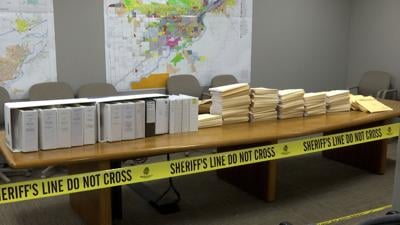MISSOULA - Within the last year alone, Montana has seen major breaks in cold cases.
And it's due in large part to a relatively new technology called forensic genetic genealogy testing, commonly known as consumer DNA testing.
In fact, law enforcement agencies across the state have been able to solve not one, but two major cold cases and put a name to the remains of two unidentified people.
However, come October 1, 2021, Montana will become one of only two states in the nation set to restrict law enforcement from gathering vital clues from these consumer DNA databases, like 23andMe and Ancestry.com.
That's because at the end of the last legislative session, Governor Greg Gianforte signed House Bill 602 into law.
"What it basically boils down to is that you're going to need to obtain a search warrant from a judge to obtain that familial DNA information from them," said Cascade County Sheriff Jesse Slaughter.
Capt. Dave Conway with the Missoula County Sheriff's Office Cold Case Squad added, "We're just trying to reconnect these families with someone who they've lost."
In our newest 'Montana Murder Mysteries' podcast, hosts Angela Marshall and Blake Simonson look at some of the cases that have been solved using forensic genetic genealogy testing.
Plus, they break down this first-of-its-kind legislation to find out how it could complicate matters for law enforcement and family members in trying to solve cold cases.
"Consumer DNA Databases: Montana Set to Restrict Police Access" is available here or wherever you download your podcasts.


































